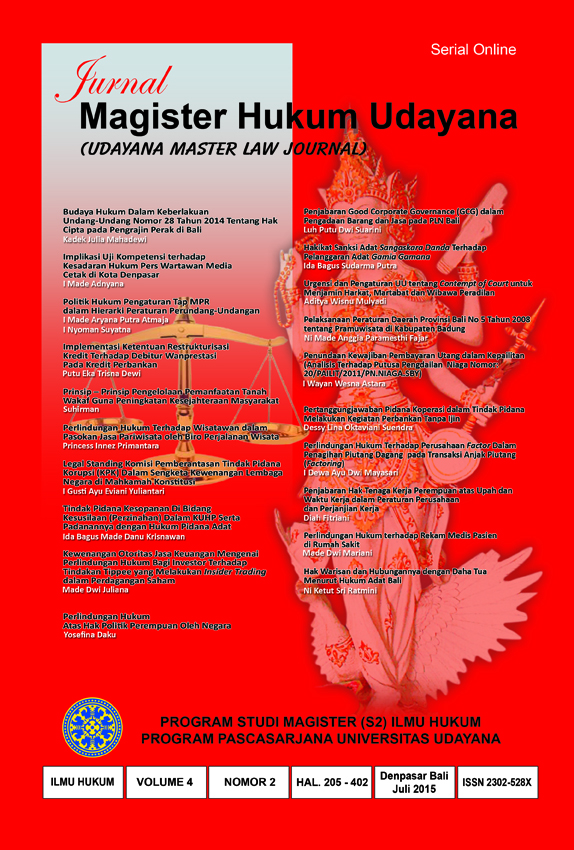HAK WARISAN DAN HUBUNGANNYA DENGAN DAHA TUA MENURUT HUKUM ADATA BALI
Abstract
This study aims to answer the question of how the law of inheritance and relationship with daha tua under customary law Bali. After doing legal research by reviewing a number of normative rules of customary law relating to inheritance and the results were analyzed with the theory of the legal system, justice theory and feminist theory, then we can conclude the nature of inheritance under customary law Bali is the process of transfer of the assets, debts, obligations and the responsibility of the heir to the heir to consider whether the position as purusa or not as Purusa.
This is in accordance with the kinship system adopted by indigenous people in Bali are patrilineal, where applicable three inheritance system that is individual, collective and mayorat. Daha tua in Bali inheritance under customary law is largely determined by its status as Purusa or not. Daha tua is purusa, if it does not have siblings (only child), where his right to inheritance is the same as a boy with the status of Purusa.
If the status is not an daha tua purusa then heritage inadmissibility under customary law as contained in the Bali awig awig and Main Assembly decision Pakraman (MUDP) is the same as the young women who have not married, are only entitled to use the property in order to get rich from their parents as the soul of funds or property that are used to maintain its viability. Subsequent developments MUDP Assembly decided, a woman is entitled to receive half of the inheritance rights purusa after the third cut to inheritance and preservation of the interests of all the women were not converted and lawlessness on their parents. Inheritance received daha parents also depends on the role of the structure that has the authority to regulate the provision of such heritage Pakraman and Village Main Assembly. Furthermore, it is suggested to indigenous villages are advised to adopt decisions in the Great Assembly awig awig as stated in the decision Majelis Utama Desa PakramanDownloads
Keywords
Jurnal Magister Hukum Udayana (Udayana Master Law of Journal) by Faculty of Law Udayana University is licensed under a Creative Commons Attribution-NonCommercial 4.0 International License.



















